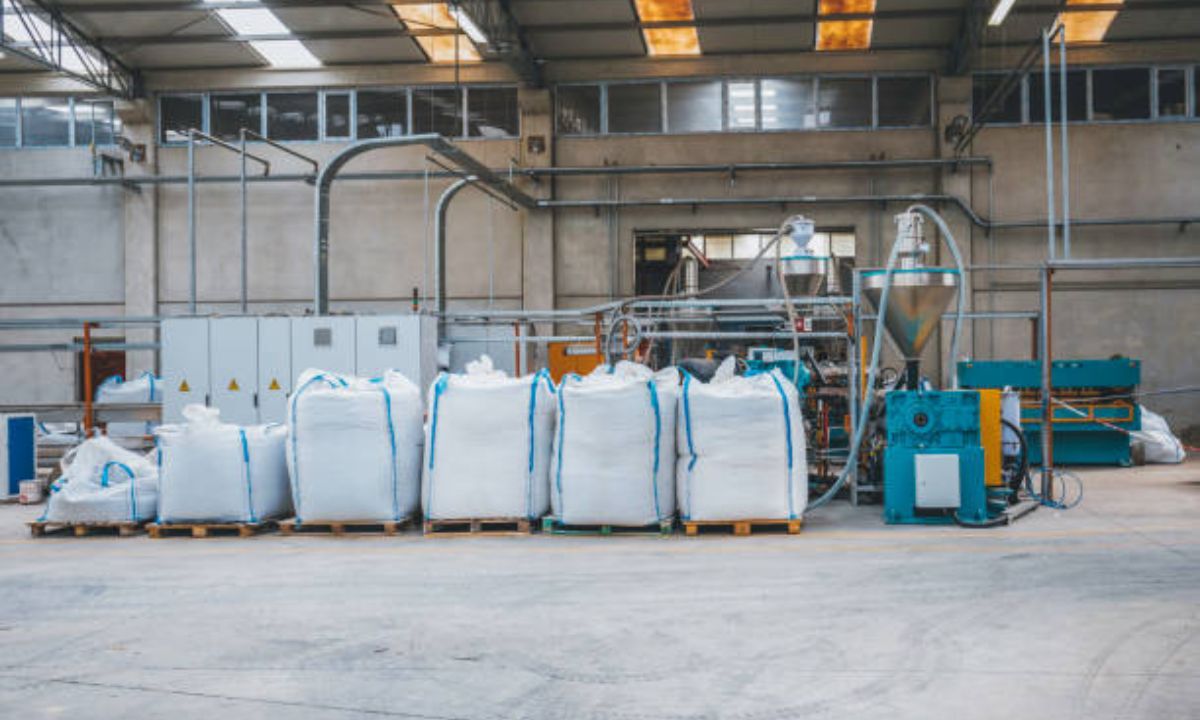Large, lightweight bags used for transporting and storing dry, flowable materials are known as Flexible Intermediate Bulk Containers (FIBC) bags. These bags also go by the names bulk bags and jumbo bags. These bags, which may be produced from woven polypropylene or other synthetic materials, have a capacity that ranges from 500 to 4000 pounds. This essay will examine the many applications of FIBC bags across many markets.
FIBC bag manufacturers consider it essential to produce high-quality bags that meet the industry’s standards and requirements. The bags must be strong enough to hold large volumes of materials, such as sand, gravel, and chemicals, while still being easy to handle and transport. At their manufacturing facility, they utilize state-of-the-art technology and quality control measures to ensure that FIBC bags meet and exceed our customers’ expectations.
The Building Trades
Sand, gravel, and cement are just some of the building materials that FIBC bags often transport and store. These bags are built to last and can hold much weight without ripping or breaking. As FIBC bags can be moved using a forklift or crane, they are an excellent option for construction sites where goods must be moved often and quickly.
Agriculture Is Big Business
FIBC bags have several applications in the agricultural sector as well. Grain, seed, and bean crops, fertilizers, and other agricultural items may all be transported and stored in these bags. Stackable on pallets, FIBC bags are convenient for storing and transporting bulky materials in limited spaces.
Processing of Chemicals
For the safe transportation and storage of powders, granules, and liquids, FIBC bags are often used in the chemical industry. These bags are built to last, even while transporting and storing dangerous items, and are intended to prevent leaks and punctures. Since they may be fitted with liners or other protective barriers, FIBC bags are a safe and dependable option for carrying hazardous products without the risk of contamination or spillage.
The Food Business
FIBC bags are used in the food business for several reasons, including storing and transporting dry goods like grains, nuts, and other foods. These bags are made to be airtight and resistant to moisture to keep the contents as fresh as possible for as long as possible. FIBC bags may be outfitted with features like resealable closures or liners to further protect the freshness and quality of the foods they transport.
Mining Sector
Bags made of flexible intermediate bulk container (FIBC) material are widely used in the mining sector for storing and transporting coal, ore, and other commodities. These bags are built to last, and they can carry significant loads without ripping or breaking. Since they are lightweight and stackable, FIBC bags are a practical and affordable option for carrying bulky items over long distances by truck or rail.
Medical Products Sector
Like with other industries, the pharmaceutical business uses FIBC bags to store and transport various components, including APIs and excipients. To avoid contamination or decomposition of the contents, these bags are airtight and leak-proof. Liners or other protective barriers may be added to FIBC bags to guarantee the integrity of the drugs they transport.
Market for Recyclables
In addition to their use in the construction business, FIBC bags have found widespread use in the recycling sector for collecting, transporting, and storing recyclables like plastics, paper, and metal. These bags are strong and won’t rip or break even when loaded with weight or debris. Transporting recyclables to processing facilities in FIBC bags is an efficient and cost-effective option since the bags can be moved around simply by truck or other methods.
Textile Manufacturing
FIBC bags are used for storing and transporting textile materials, including cotton, wool, and other fibers in the textile industry. These bags are built to withstand heavy loads without ripping or breaking and have a vast capacity.
Plastic pellets, resins, and other granular materials are widely transported and stored in FIBC bags in the petrochemical sector. To avoid the development of static charge during transit, these bags may be made with anti-static qualities, as required by the petrochemical sector.
The Market for Waste Management
FIBC bags are used to transport and store rubbish and recyclables in the waste management sector. These bags are built to last, with a reinforced bottom and a thick wall, so they can hold a lot of trash without ripping or breaking. Since they can be quickly loaded into a truck or other vehicle, FIBC bags are a practical and affordable option for transporting waste to landfills.
Industry of Automobiles
FIBC bags transport and store materials, including rubber, plastic, and metal in the automobile sector. To minimize the accidental breakage of fragile components during transit, these bags may be modified to include padding and other features according to the automobile industry’s demands.
Industrialization of the Aerospace Sector
Composites and other lightweight materials are transported and stored in FIBC bags in the aerospace sector. These bags may be light and sturdy to transport delicate items for aerospace applications.
End Note
FIBC bags may be used in various contexts. They’re great for hauling and stowing a wide range of things since they’re sturdy, long-lasting, and adaptable. Various sectors, from building and farming to petrochemicals and aerospace, rely heavily on FIBC bags; this trend is only expected to grow.
